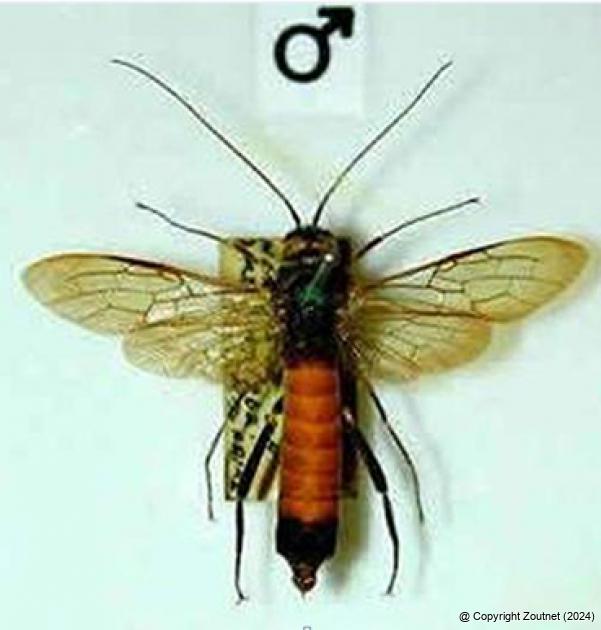

ADVERTISEMENT:

Sirex woodwasp poses threat to pine industry
The Sirex woodwasp has invaded the Soutpansberg and poses a real risk for commercial pine trees.
This was confirmed by Dr Brett Hurley from the Forestry and Agriculture Biotechnology Institute (FABI) during a recent visit to the area at the invitation of the Soutpansberg Plant Pest and Disease Council.
“For years we lived under the treat that the Sirex woodwasp is approaching the Limpopo. FABI has discovered a few occurrences and foresters in our area are now wide awake to intensify their monitoring. FABI will provide us with a managing programme to either exterminate the woodwasp or manage it,” said Mr Dries Alberts of the local pest and disease council and a Levubu agricultural consultant.
The Sirex Noctilio is a species of horntail and has the ability to attack a variety of pine trees, but trees that are under stress are more susceptible. Pine trees that have been attacked develop flagging and the needles turn form green to yellowish-red until they become brown. This could happen over a period of three to six months, with the resultant death of the trees.
The Sirex woodwasp is native to Europe, Asia, northern Amercia and northern Africa, but is an invasive species in Australia, New Zealand, South America and South Africa.
It was first introduced to South Africa in 1994 when it was found in the Western Cape on Pinus radiata. By 2002, Sirex had spread along the southern Cape and into the Eastern Cape, moving onto Pinus patula. It moved to Kwa-Zulu Natal, where a high pine-tree mortality occurred during 2004. It then started moving towards Mpumalanga and Limpopo, placing around 280 000 hectares of pine plantation timber at risk (www. icfr.ukzn.ac.za).
The local plant pest and disease council feels that it is of major importance for them to be linked to FABI. FABI is known for their successful and internationally acclaimed Tree Protection Co-operative Programme (TPCP). This programme, initiated in 1990 before the formal establishment of FABI in 1997, has supported South African Forestry for many years. The TPCP provides the entire forestry industry of South Africa with support in the field of tree health, and more particularly, forest pathology and forest entomology. The group includes projects not only in South Africa, but in other parts of Africa, South America, South East Asia, Europe, Australia and North America.
Alberts says that foresters and farmers can keep contact with the Soutpansberg Plant Pest and Disease Council.
"It is not as easy for an individual to link up with the best research teams as it is for the council," Alberts said. He can be contacted at the email address [email protected]
News - Date: 16 April 2012

Recent Articles
-

Bekende akademikus verloor stryd teen kanker
26 April 2024 By Andries van Zyl -

Former mayor of Tshwane, Dr Murunwa Makwarela, passes away
26 April 2024 By Victor Mukwevho -

Community relieved after suspect gets caught
26 April 2024 By Elmon Tshikhudo -

Ystervrou van die Bosveld oorlede
26 April 2024 By Pétria de Vaal
Search for a story:

ADVERTISEMENT


Linda van der Westhuizen
Linda van der Westhuizen has been with Zoutnet since 2001. She has a heart for God, people and their stories. Linda believes that every person is unique and has a special story to tell. It follows logically that human interest stories is her speciality. Linda finds working with people and their leaders in the economic, educational, spiritual and political arena very rewarding. “I have a special interest in what God is doing in our town, province and nation and what He wants us to become,” says Linda.

ADVERTISEMENT:

